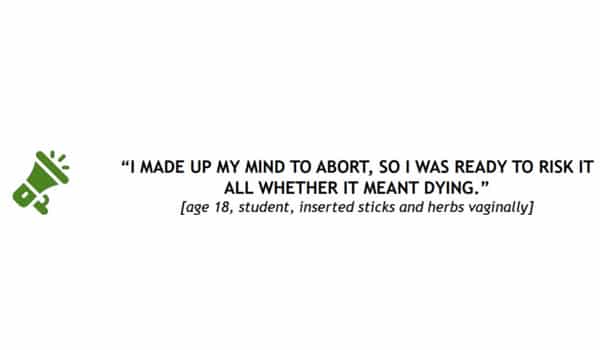
This policy brief summarises a study of how adolescent access to contraception and abortion-related care is perceived and experienced by adolescents in urban Ethiopia, Malawi and Zambia. Interviews were conducted with 313 adolescents (10-19 years) who sought safe abortions or care for complications of an unsafe abortion. Interviews were done in one health centre and hospital in each country over almost two years in 2018-19. This is a summary of the key findings from 104 interviews conducted in Malawi:
- 70% of the girls lived in homes with no electricity, indicative of their poverty.
- 60% were under age 18, and 1/3 tried to end their pregnancies because they were afraid they would have to leave school.
- Only 1 in 5 girls had heard anything about emergency contraception, none had ever used it.
- Over two-thirds of girls delayed seeking care, increasing their health risks. Most said they were “afraid”, “did not know what to do” or “where to go”.
Abortion safety was closely linked to legality. In Ethiopia, 98% of abortions were safe. In Zambia it was only 33% and in Malawi, only 4%. But even unsafe abortions were a relief.
Girls perceived themselves not to have the power to negotiate contraceptive use. Misconceptions about condoms and contraceptive were common.
POLICY BRIEF, c/o Ernestina Coast, by LSE/Ipas/AFIDEP, August 2020



